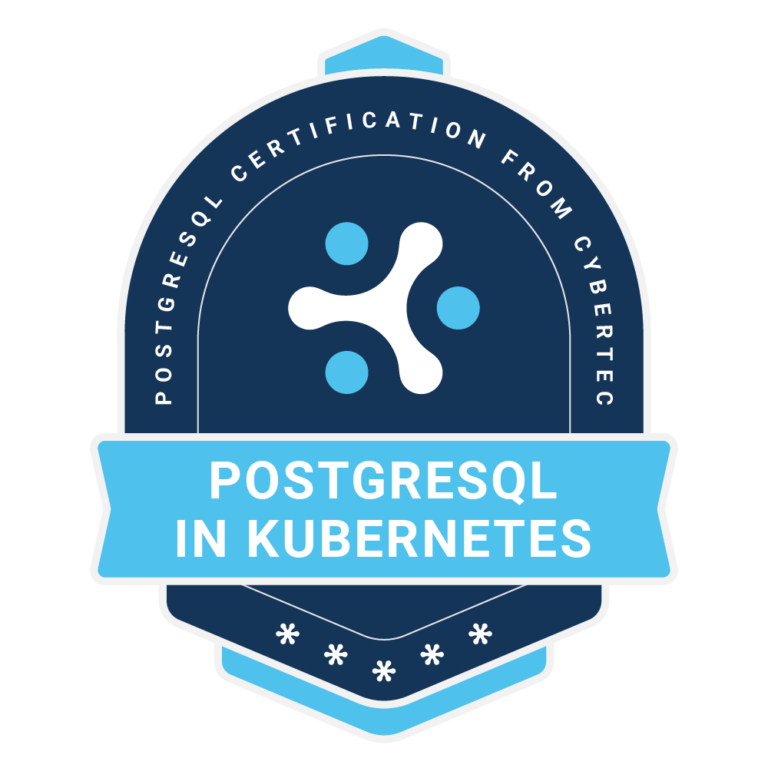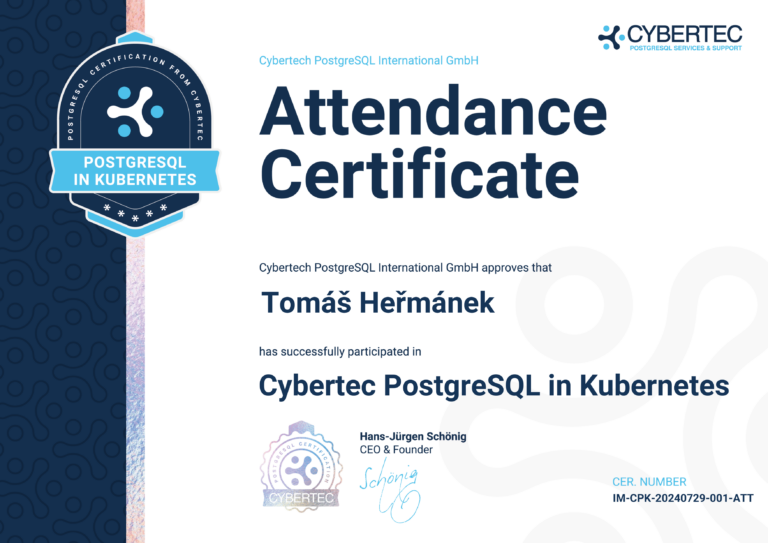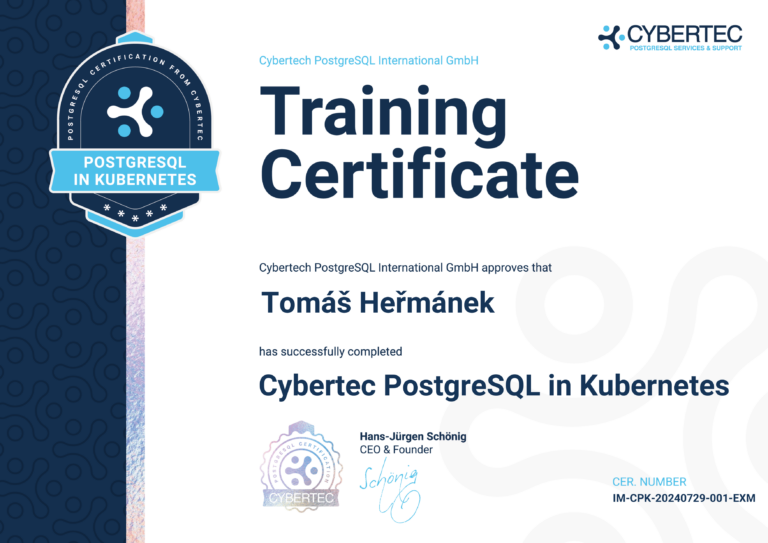
PostgreSQL in Kubernetes
This course provides an introduction to Kubernetes itself and to Kubernetes resources, which are needed in order to manage PostgreSQL. The aim is to gain insights on how PostgreSQL works best within the Kubernetes ecosystem and to overcome challenges of managing multiple PostgreSQL clusters. We will discuss the high availability of PostgreSQL running in Kubernetes, learn how automatic failovers are triggered and cover the options of managing backups and everything else to satisfy all production needs.
Information about the course
| Designed for the product: | PostgreSQL |
|---|---|
| Group size: | Group of up to 15 students |
| Type of exam: | 30 min, theoretical |
| Requirements: | experience with PostgreSQL and OS Linux |
| Course language: | English |
| Available online: | Yes |
| Course length: | 3 DAYS |
| Course price: | € 1,500 excluding VAT |
Course content
Day 1
Short introduction to Kubernetes
- Containers
- Container Orchestration
- What is Kubernetes
- Kubernetes Architecture
- Resources
- Reconciliation loop
- Networking
Day 2
Setting up Kubernetes Environment
- Installation Methods
- Minikube
- Using cli tools to manage Kubernetes
- Using Kubectl
- Pods
- Configmap
- Secrets
- Controllers
- Operators
- Replicaset
- Deployments
- StatefulSet
- DeamonSet
- Jobs
- Services
- NodePort, LoadBalancer, ClusterIP Service
- Ingress
- Updates to deployed application, rollback…
Day 3
Storage
- Storage Volumes
- emptyDir
- HostPath
- Persistent Volumes & Persistent Volume Claims
- Static Volume Provisioning
- Dynamic Volume Provisioning
Postgres Operator
- Concept
- Configuration
- Administration
Patroni in Kubernetes
Use cases
- Managing postgres using postgres Operator
- Shrinking/extending
- Changing configuration of Operator
- Changing configuration of postgres
- Managing databases and roles
- Managing backups (logical & continuous)

Jakub Zemanek
Technical Consultant & DBAAdditional information
Certificate
- After successfully passing the exam, you will obtain official Cybertec certification

Course certificates and gifts
For all attendees


For passing the exam

